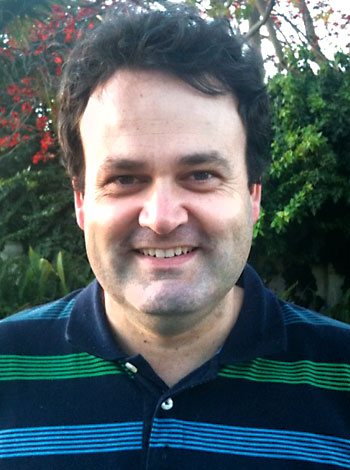Shayne Loft
 University of Western Australia, Australia
University of Western Australia, Australia
http://www.uwa.edu.au/people/shayne.loft
What does your research focus on?
My research goal is to conduct theory-driven research to uncover the mechanisms that underlie human performance in safety-critical work contexts. My general approach is to observe performance in complex work systems (e.g., air traffic control, submarine track management, piloting) and take these insights back into the laboratory, bringing them under experimental control. This laboratory research is complemented by field research and consultancy. Some specific areas of interest include prospective memory, conflict detection, workload, situational awareness, training and automation.
What drew you to this line of research? Why is it exciting to you?
I have always been interested in the aviation and the military, and my interest in psychology began during my undergraduate days. I am enthusiastic about strengthening the link between basic research science and practice and value the transfer of knowledge and skills back to industry. I believe it is crucial to carry out theoretically relevant research on task analogues that are close to important real world problems. It is exciting when industry draws upon my basic research to inform practice.
Who were/are your mentors or psychological influences?
My wife, mother and father are my largest psychological influences. They have all stuck by me unconditionally during tougher times. My PhD advisors, Michael Humphreys and Andrew Neal, have had the largest professional influence on me, and both have always stressed the importance of focusing on research publication. More recently, I have learned a great deal from Roger Remington and Rebekah Smith.
To what do you attribute your success in the science?
I think I have been lucky with timing. When I finished my PhD, I moved straight into a post-doctoral position which allowed me to consolidate my research. I have received excellent mentorship and have been lucky enough to work with clever and productive collaborators.
What’s your future research agenda?
I am continuing an Australian Research Council funded project examining the manner in which attention, in terms of eye movement, is directed by past experiences in tasks where individuals monitor complex dynamic displays and how this relates to error. I am also continuing a project funded by the Australian Defence Science and Technology Organisation testing situational awareness measurement techniques for submarine naval track management. I have recently applied for further funding from the Australian Research Council to test a performance theory that specifies how individuals remember to perform deferred actions (prospective memory) when monitoring and controlling complex dynamic displays.
Any advice for even younger psychological scientist? What would you tell someone just now entering graduate school or getting their PhD?
I think it is crucial for PhD students to focus on publication. I believe the quality and impact of publication (research track record) is the most important determinant of academic job selection. Once the first job is landed, it becomes important to win competitive research grants and provide quality supervision and teaching.
What publication you are most proud of or feel has been most important to your career?
Loft, S., Bolland, S., Humphreys, M.S., & Neal, A. (2009). A theory and model of conflict detection in air traffic control: Incorporating environmental constraints. Journal of Experimental Psychology: Applied, 15, 106-124.
This paper presented a performance theory that described the psychological processes by which air traffic controllers predict which aircraft on their display will violate safe separation standards in the future. A formal computational model based on the assumptions of the theory accurately predicted air traffic controller decisions in a simulator setting.





APS regularly opens certain online articles for discussion on our website. Effective February 2021, you must be a logged-in APS member to post comments. By posting a comment, you agree to our Community Guidelines and the display of your profile information, including your name and affiliation. Any opinions, findings, conclusions, or recommendations present in article comments are those of the writers and do not necessarily reflect the views of APS or the article’s author. For more information, please see our Community Guidelines.
Please login with your APS account to comment.